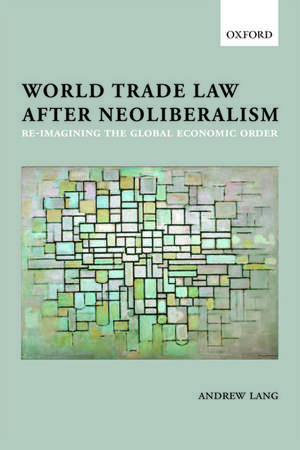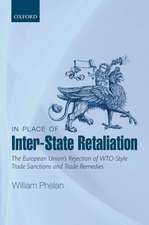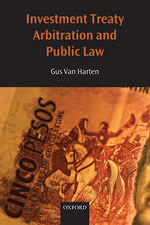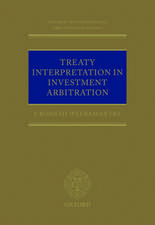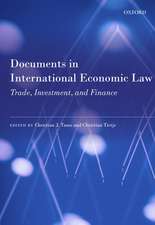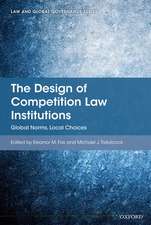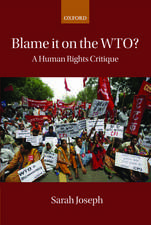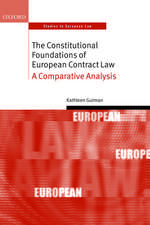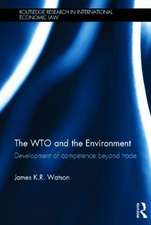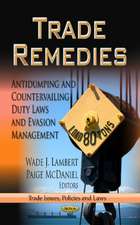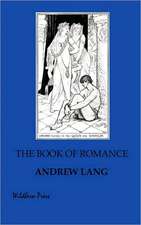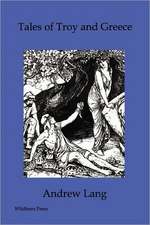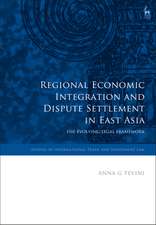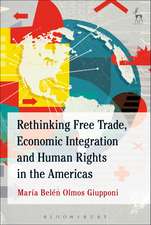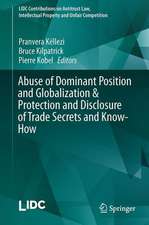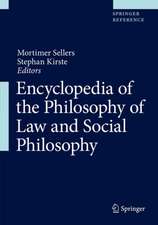World Trade Law after Neoliberalism: Reimagining the Global Economic Order
Autor Andrew Langen Limba Engleză Paperback – 16 ian 2013
| Toate formatele și edițiile | Preț | Express |
|---|---|---|
| Paperback (1) | 324.75 lei 31-37 zile | |
| Oxford University Press – 16 ian 2013 | 324.75 lei 31-37 zile | |
| Hardback (1) | 807.60 lei 31-37 zile | |
| OUP OXFORD – 21 sep 2011 | 807.60 lei 31-37 zile |
Preț: 324.75 lei
Preț vechi: 396.14 lei
-18% Nou
Puncte Express: 487
Preț estimativ în valută:
62.14€ • 65.05$ • 51.42£
62.14€ • 65.05$ • 51.42£
Carte tipărită la comandă
Livrare economică 25-31 martie
Preluare comenzi: 021 569.72.76
Specificații
ISBN-13: 9780199674398
ISBN-10: 0199674396
Pagini: 416
Dimensiuni: 165 x 233 x 23 mm
Greutate: 0.62 kg
Editura: Oxford University Press
Colecția OUP Oxford
Locul publicării:Oxford, United Kingdom
ISBN-10: 0199674396
Pagini: 416
Dimensiuni: 165 x 233 x 23 mm
Greutate: 0.62 kg
Editura: Oxford University Press
Colecția OUP Oxford
Locul publicării:Oxford, United Kingdom
Recenzii
Lang is not the first author to have traced the ideational changes that contributed to the neoliberal transformation of trade law. However, it seems fair to say that no other author has paid such careful attention to the role of legal ideas in this story. Lang shows how changing ideas about trade have been linked to changing modes of legal analysis. He illustrates these changes with concrete examples taken from the decisions of GATT and WTO adjudicative bodies. And, in doing so, he demonstrates how legal ideas have had broader ideational and material consequences.
Lang's book is a thorough, original, and quite needed deconstructivist analysis of the "neo-liberal turn" read in a historical and theoretical context. The book nicely deconstructs all prevailing notions in the field, with in-depth reading of the WTO cases and trends, to show how such notions have emerged (and contrasted) historically and used as a means to an end by different groups. This is a rather intelligent exercise that does justice to the bulk of rhetoric which is massively present not only in the media (as predictable), but also (unfortunately) in the scientific literature.
Lang employs a constructivist framework and puts much emphasis on the 'ideational' dimension of the trade regime. He provides a rich and detailed analysis that certainly lives up to the book's promise.
Lang's book is a thorough, original, and quite needed deconstructivist analysis of the "neo-liberal turn" read in a historical and theoretical context. The book nicely deconstructs all prevailing notions in the field, with in-depth reading of the WTO cases and trends, to show how such notions have emerged (and contrasted) historically and used as a means to an end by different groups. This is a rather intelligent exercise that does justice to the bulk of rhetoric which is massively present not only in the media (as predictable), but also (unfortunately) in the scientific literature.
Lang employs a constructivist framework and puts much emphasis on the 'ideational' dimension of the trade regime. He provides a rich and detailed analysis that certainly lives up to the book's promise.
Notă biografică
Andrew Lang is a Senior Lecturer in Law at the London School of Economics, teaching public international law, with a specialty in international economic law. He is a co-founder, with Colin Picker, of the Society of International Economic Law. He sits on the Editorial Boards of the Modern Law Review, the Journal of International Economic Law and the Law and Development Review, and is a Book Review Editor for the International and Comparative Law Quarterly. He has taught on the World Trade Institute's Masters of International Law and Economics (MILE) program, the University of Barcelona's IELPO course, as well as the IIEM Academy of International Trade Law in Macau. Andrew has a combined BA/ LLB degree from the University of Sydney, receiving the University Medal in both degrees. His PhD is from the University of Cambridge, graduating in May 2005. From 2004-2006, he was the Gott Research Fellow in Law at Trinity Hall, at the University of Cambridge.
